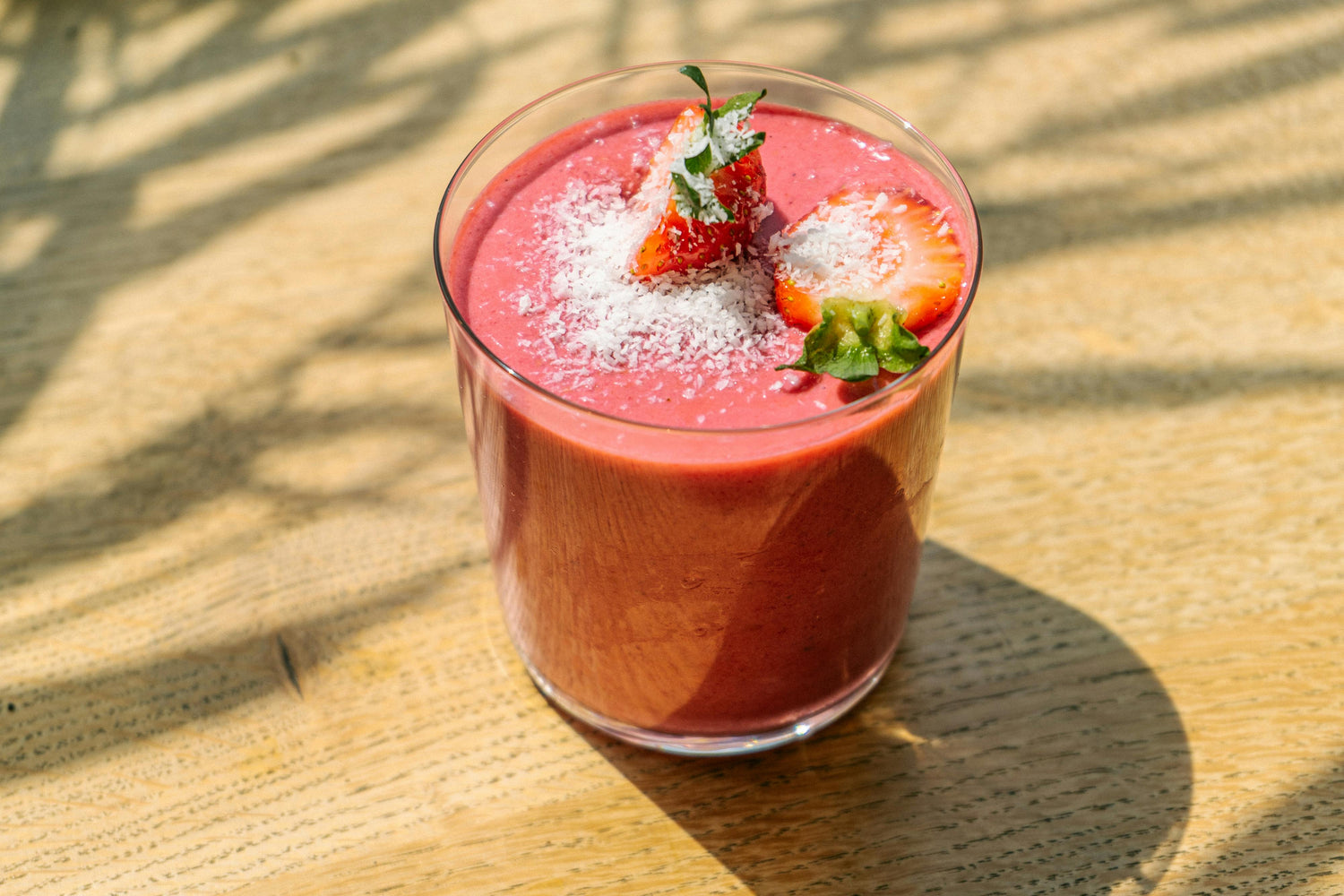
Acne Self Care: The Definitive Guide
Ben Franklin famously said that nothing in this world is certain except death and taxes, but we think he forgot a third (and equally delightful ) thing: acne.
Whether it’s the occasional pimple or a full-on breakout, you’d be hard pressed to find someone who hasn’t dealt with at least a few zits here and there. Yet for something that’s so common, the acne treatment advice that’s out there can be contradictory, confusing, and all over the map.
So today we thought we’d--ahem-- clear up the best ways to care for yourself and your skin when you’re experiencing blemishes. Without further ado, here is our acne self-care guide.
What Is Acne?
Let’s start with the basics. Acne can manifest in a lot of different ways. It’s not just your typical pimple. Acne can also include whiteheads, blackheads, and hard, painful cysts. Many people with acne also have acne rosacea: clusters of small, red bumps on the skin.
Acne is most common on your face, neck, back and chest. But it can pop up just about anywhere. (And yes, we do mean anywhere.) This is because acne is a result of pores in your skin that get clogged with oil and dead skin cells. So virtually anywhere you have skin, you can also get a zit.
And for the record, you shouldn’t blame yourself if you have acne. Not only is it extremely common--studies indicate at least 80 percent of people have it--but it can be due to factors that are hard to control, like genetics and hormones.
Here are a few other common contributors to breakouts:

What Causes Acne?
Besides some bad luck in your DNA and fluctuations in hormones, you can also get acne from certain medications . These include but are not limited to certain types of birth controls, bioidentical hormones, steroids and more. Some supplements, like biotin, can also promote acne.
We don’t ever advise ceasing medication use without speaking to your doctor, but you’ll be happy to know that there are measures you can take if you determine your meds are the acne culprit. Sometimes, adding a specific vitamin to your routine can help counteract the medication’s effects.
Moreover, using hair products and skin products with pore-clogging ingredients are one of the biggest offenders when it comes to zits, and unfortunately many acne “remedies” passed around the internet, like using coconut oil on your skin, will make your breakouts worse. Even more sadly, many products marketed as non-comedogenic (AKA non-pore-clogging) don’t live up to their claims.
When choosing hair and skin products that work for you, your best bet is to do your research. Work with a certified skincare professional if that’s within your means, or do a quick google search for pore-clogging ingredient checkers to get some guidance.
Keep in mind, anything that touches your skin, including fabrics like your pillowcase or your favorite hat, have the potential to exacerbate your acne. So we recommend washing everything with an unscented, gentle detergent to be safe.

Another thing that likely spends a lot of time touching your face these days? Masks . These bad boys can cause acne on even the most zit-resistant skin. Luckily, there are a few precautions you can take to reduce maskne, as it’s affectionately been dubbed:
- If possible, workout at home, in an unpopulated outdoor space, or another area where you don’t need to sweat with a mask on.
- Choose a mask made of natural materials such as cotton or silk, since these are better at wicking moisture and bacteria than synthetic materials.
- Wash your masks after every use. If you’ve found a face wash that works well for your skin, you can use that to wash your mask.
- After you’ve washed and dried your masks, spray them with rubbing alcohol and allow your masks to dry before wearing them.
- If possible, avoid wearing paper masks as the irritation they cause by rubbing against your skin may add to your breakouts.
- If you’d like to take extra precautions, you can apply a thin layer of an acne spot treatment to the area covered by your mask prior to putting the mask on.
Changes in weather and humidity can also contribute to breakouts. Obviously, you can’t control the weather (wouldn’t that be nice!) so this is one situation where patience is key. Eventually, your skin will adjust to a change in environment. However, you can help your skin do its job by avoiding heavy products that block sweating in humid weather and using a good quality moisturizer in dry weather.
If you do find that you’re getting sweaty when you go outside (or when you exercise or take a trip to the sauna), be sure to wash your face as soon as you can, and follow up with a pH balancing toner .
That said, you don’t want to over wash your face , as this can lead to dry skin and overproduction of oil, which creates more acne. Keep your face washing to three times per day at most, or two if you’re not fitting in a sweaty workout session.
But it’s not all about what you put on your face; what you put in your body matters too. Eating acne-promoting foods won’t help you get clear skin. And while these will vary from person to person, it’s safe to assume that anything processed or laden with sugar won’t help you glow. Many folks find that dairy and/or gluten lead to pimples, so you might try eliminating those foods for a few weeks and see how your skin fares.
Finally, while poor lifestyle factors like too much stress and lack of sleep may not cause acne, they can exacerbate it, so do your best to care for your overall health; it’ll only help your skin.
We know, this is a lot of information; and it can feel overwhelming at first. But as you incorporate these changes and habits into your lifestyle, they’ll become second nature (and your skin will thank you). To make this process easier, we’ve made a checklist of daily, weekly and monthly items that will help keep your skin stay clear and in balance.

Daily Self Care for Acne
Of course, what you do every single day will have the biggest impact on how your skin looks, so try to make each of these a habit:
- Wash your face with a gentle cleanser one to two times a day, plus any time you get sweaty. We recommend using a gentle face wash with B-vitamins , which help your skin build up a resistance to pollutants that can cause zits. Use cool water to wash your face and don’t scrub too vigorously.
- Balance your skin’s pH with toner, preferably one that has an anti-inflammatory boost .
- Treat any existing pimples with a nourishing spot treatment to reduce inflammation and scarring.
- Use a high quality, lipid-soluble vitamin C serum , which is critical for fighting inflammation (and gives you a luminous glow as a bonus).
- Eat healthful, vitamin-rich foods and limit processed foods. Don’t unnecessarily restrict the amount that you're eating; your skin needs abundant nourishment to thrive.
- You’ve heard this one before: stay hydrated! You might try setting reminders on your phone throughout the day to have a glass of water or tea.
- Practice stress reduction in whatever way works best for you: exercise, meditation, breathwork or cuddle time with your four-legged friend are great examples.
- Use sunscreen every day. Not only can products that treat acne make you more susceptible to sun damage, but sun can make acne scars look darker and more severe. So protection is critical.
- Keep your hands clean and avoid touching your face. This means no picking at or popping pimples, either!
- Wash your face masks and hang them out to dry at the end of the day.
- Most importantly, dedicate time to doing the things that make you feel good. Joy is nourishing for your body and skin.
 Weekly Self Care for Acne
Weekly Self Care for Acne
To get the best results for your skin, there are a few tasks you may want to incorporate into your routine once or twice a week. To make them extra indulgent, save them for a designated self-care afternoon.
- Exfoliate your skin with an acne-safe face scrub (and don’t forget one for your body too )!
- Wash and change your sheets, pillowcases and anything else that touches your skin every day. (Spray your linens with essential oils to make this process more refreshing and enjoyable.)
- Use a plant-rich resurfacing mask to remove pore-clogging dead skin, promote skin cell turnover, and keep acne scarring at bay.
- Spend time reflecting on the things you love about yourself and the parts of yourself that you find beautiful. Doing this will give you the energy and motivation you need to continue on your skincare journey.
Monthly Self Care for Acne
Every few weeks, there are steps you can take to level up your skincare routine.
- If it’s within your means, consider getting a professional facial. Licensed estheticians can use high-strength products that aren’t safe for home use, which lead to even more dramatic results.
- Wash bigger items that you may not get to in your weekly laundry, like your comforter.
- Take stock of your self-care journey over the past few weeks. Make note of what you did well and what you’d like to improve on. Perhaps brainstorm a new way to reduce stress or get more veggies on your plate.
 Acne Self Care With Wild Ice Botanicals
Acne Self Care With Wild Ice Botanicals
The good news about taking care of your skin is that you’re taking care of your whole self. The same things that benefit your complexion, like healthy food and sunscreen, keep your entire body thriving. That’s why we’re confident that your acne self care journey will reap benefits far beyond just fewer pimples.
If you’d like to get started caring for your acneic skin today, many of the products we’ve mentioned in this article are available at a reduced price when bundled in our 4-step facial set , which is the perfect place to start on your skincare journey.
All of the products we sell at Wild Ice are kept cold until the moment we ship them to you, which means that they retain maximum potency and don’t contain unhealthy preservatives, because we think your skin deserves the best.
If you embark on an acne self-care journey this year, we’d love to hear how it goes. Drop us a line or comment below. We can’t wait to see you glow!

